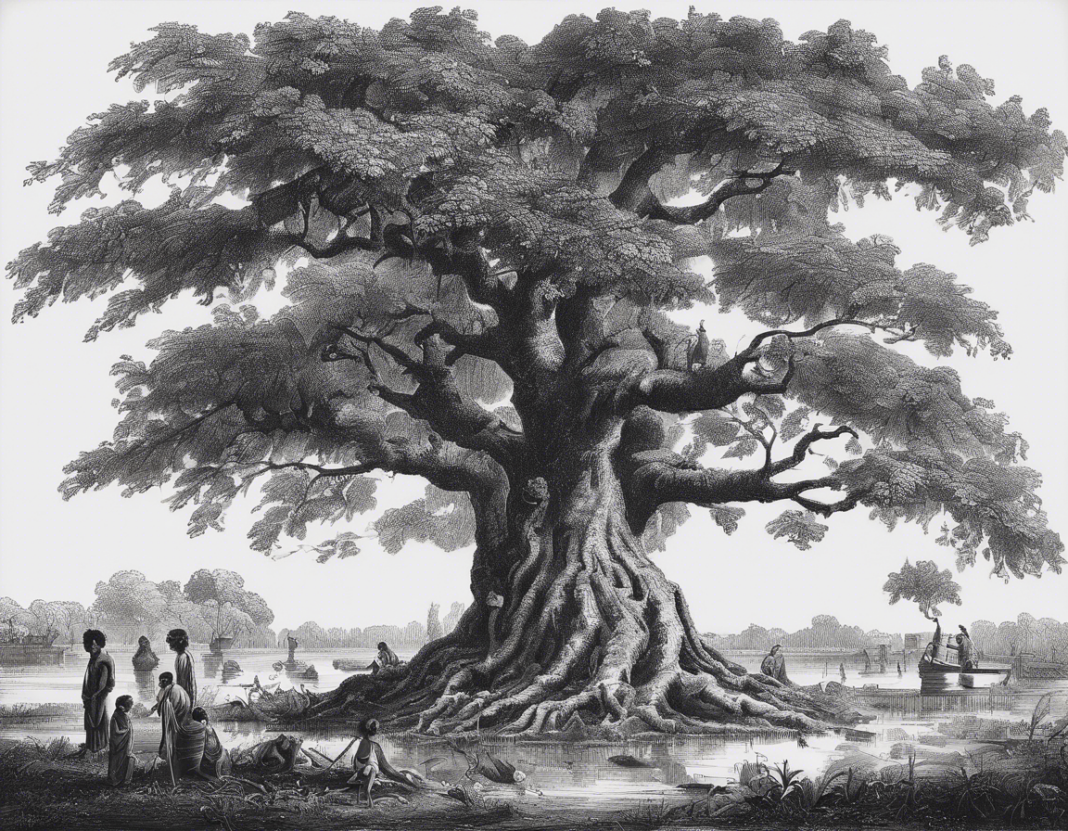Introduction:
In many cultures around the world, trees are considered symbols of life, growth, and vitality. The act of cutting down or killing a tree is often significant and can hold various meanings depending on the context and culture. In Bengali culture, where trees are revered and often considered sacred, the act of killing a tree carries deep symbolic and cultural significance. In this article, we will delve into the Bengali meaning of killing a tree, exploring the various beliefs, traditions, and consequences associated with this act.
The Importance of Trees in Bengali Culture:
Before we can understand the implications of killing a tree in Bengali culture, it is crucial to first appreciate the significance of trees in the broader cultural context. Trees hold a sacred place in Bengali culture, symbolizing life, fertility, and prosperity. In Hinduism, which is the predominant religion in Bangladesh and the Indian state of West Bengal, trees are often associated with deities and revered as manifestations of the divine.
Trees are also deeply intertwined with Bengali folklore, literature, and art. In Rabindranath Tagore's famous poem "The Tree of Life," the tree represents the interconnectedness of all living beings and the cycle of life and death. In traditional Bengali folk songs and dances, trees are celebrated for their beauty, resilience, and generosity.
The Act of Killing a Tree:
In Bengali culture, the act of killing a tree is not taken lightly and is often viewed as a grave offense against nature and the divine. Trees are believed to possess a soul or spirit, known as the 'বৃক্ষ দেবতা' (Bricksha Debota) in Bengali, which is said to reside within the tree and protect its surroundings.
When a tree is cut down or killed, it is believed that the Bricksha Debota is disturbed and angered, leading to various negative consequences for the individual responsible and the community at large. In rural Bengali villages, it is not uncommon for people to seek the blessing of the Bricksha Debota before cutting down a tree for firewood or construction purposes.
Symbolism and Consequences:
In Bengali culture, the act of killing a tree is often associated with death, destruction, and imbalance in nature. Trees are seen as vital links between the earth and the heavens, serving as conduits for spiritual energy and cosmic forces. When a tree is killed, this sacred connection is severed, leading to disturbances in the natural order.
Killing a tree is also believed to invite misfortune, illness, and calamity into one's life. In Bengali superstition, it is said that cutting down a tree without proper reverence or ritual can bring about curses, bad luck, and even premature death. This belief stems from the idea that trees are protectors of the land and its inhabitants, and their destruction can unleash malevolent forces.
Rituals and Remedies:
To mitigate the negative consequences of killing a tree, there are various rituals and remedies prescribed in Bengali culture. In some communities, before cutting down a tree, offerings of rice, flowers, and incense are made to appease the Bricksha Debota and seek forgiveness for the act. Traditional prayers and hymns are also recited to honor the spirit of the tree and ask for protection from harm.
After a tree is cut down, its wood is often used for sacred purposes, such as carving idols, constructing temples, or fueling ceremonial fires. This practice is believed to honor the spirit of the tree and ensure that its energy is preserved and utilized for positive ends. By channeling the life force of the tree into sacred objects or rituals, the negative consequences of its death can be mitigated.
FAQs (Frequently Asked Questions):
-
What is the significance of trees in Bengali culture?
Trees hold a sacred place in Bengali culture, symbolizing life, fertility, and prosperity. In Hinduism, trees are often associated with deities and revered as manifestations of the divine. -
What is the Bricksha Debota?
The Bricksha Debota is the spirit or soul believed to reside within a tree in Bengali culture. It is said to protect the tree and its surroundings, and disturbances to this spirit can lead to negative consequences. -
What are the potential consequences of killing a tree in Bengali culture?
Killing a tree is believed to invite misfortune, illness, and calamity into one's life. It can also disrupt the sacred connection between the earth and the heavens, leading to imbalances in nature. -
Are there rituals to appease the spirit of a tree after it has been cut down?
Yes, there are various rituals and remedies in Bengali culture to seek forgiveness and protection after killing a tree. Offerings, prayers, and sacred uses of the tree's wood can help mitigate the negative consequences. -
How are trees represented in Bengali folklore and literature?
Trees feature prominently in Bengali folklore, literature, and art, symbolizing interconnectedness, resilience, and beauty. In poems and songs, trees are celebrated for their spiritual significance and life-giving properties.

